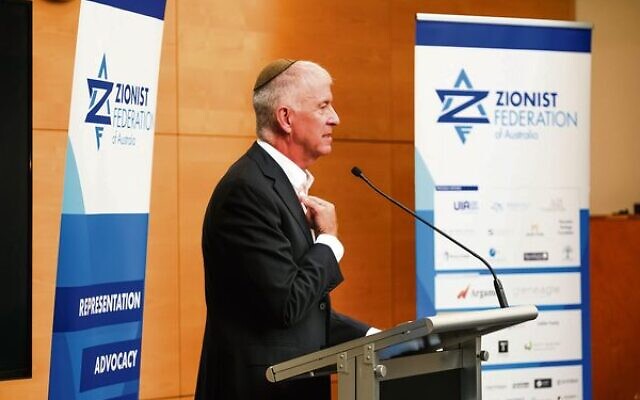Donniel Hartman on Israel and Zionism
'I think our Zionism has to evolve into … an engagement and an exciting journey to join in with Israel to build the Israel that we want'
Zionism’s success, and the reality of Israel as a powerful country means the movement has to change to match reality.
That’s according to Rabbi Donniel Hartman, an influential modern Orthodox rabbi, philosopher and educator and president of the Shalom Hartman Institute in Jerusalem.
He’s been in Australia recently, promoting his vision of a pluralistic, ethical and vibrant Jewish future. He gave the keynote address at the Zionist Federation of Australia plenary conference last month.
Hartman said Zionism was originally concerned with making sure the State of Israel exists and defending it against its enemies.
“But in many ways, despite the fact that there are still dangers, the truth is that we won! And it’s only Jews who get nervous when you say we won,” he said.
“Our army is one of the most powerful in the world, our economy is vibrant, our population is having children which is just a symptom of hope towards the future – Zionism is a huge success. Now our challenge is to shift from a Zionism whose job it is to defend Israel from external entities to a Zionism of aspiration, to a Zionism which asks, what type of country do we want to have?” Hartman said.
He said there are four types of Jewish relationships to Israel today – troubled, untroubled, committed and uncommitted.
Hartman suggested there is not much that can be done with the untroubled uncommitted, who simply are not engaged with Israel and Judaism.
He said that the untroubled committed are those who believe everything in Israel is wonderful and it’s a utopia, but that’s not a realistic view in the long run.
“The challenge of Zionism today is to make sure that we strengthen the troubled committed and move the troubled uncommitted back to the trouble committed; but so many Zionists think that Zionist discourse should be determined by the untroubled committed,” he said.
He’s been telling Australian Jewish audiences that maintaining a stance that everything in Israel is perfect isn’t sustainable.
“If you’re on your phones and on social media, the challenges of Israel are there [and] to deny them or to accuse anybody who raises them of being antisemitic, it’s not going to work in the long run. So I think our Zionism has to evolve into … an engagement and an exciting journey to join in with Israel to build the Israel that we want,” Hartman said.
“Like a parent, you would fail if your love for your child wasn’t unconditional, but at the same time, you would fail if you didn’t tell your children where you think they were doing something wrong or share your feelings and attitudes towards them.
“So this is, I believe, where Zionism is going – in Israel the whole protest movement is a protest movement of the troubled committed,” he said.
Rabbi Hartman believes Australian Jews should see themselves as real partners with Israel.
He said he is very impressed with the huge percentage of children going to Jewish schools and taking part in youth movements, which he believes is unprecedented in Jewish life.
“Precisely because … Jews here in Australia seem to talk to each other to a higher degree than other places, you might be able to come up with answers, methodologies and approaches that the rest of the world could learn from in the future,” he said.
“The future of Zionism is going to be shaped by the committed, allow space for the troubled to commit and you can help write the next chapter of Zionism.”


comments